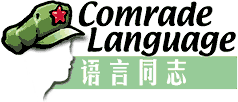Even China neophytes know that the word guanxi means 'relationships.'
One kind of guanxi refers to the useful relationships you maintain with
people who are in a position to help you in some way. Here's a purely
xujia (hypothetical) example to illustrate the point: a China-savvy
business executive regularly invites members of thegongshangju
(Commercial Bureau) out to expensive dinners. One day the executive
needs to set up a representative office for his company in Beijing,
so he simply calls up his friends at the Bureau and presto! He's got
his yingye zhizhao (business license) quicker than a mob of rush-hour
commuters scurrying for an empty seat on the subway.
It is this kind of guanxi that makes the Chinese world go round.
Without it, people suffer in China. Indeed, guanxi-less companies suffer,
too. To see for yourself, just visit any profitable waizi qiye
(foreign-invested enterprise) and look for the handful of employees
thatsit around all day doing absolutely nothing but smoking cigarettes,
reading the newspaper and chatting (i.e. the same things employees of
State stores do all day). Certainly these laggards weren't hired for
their zeal and vigor toward their work, or their indefatigable diligence
or superior intelligence. They are on the payroll simply because they
have certain gunxi that makes them invaluable to their employer.
But the word guanxi also refers to all kinds of other relationships.
There's ' qinqi guanxi (family relationships; relatives), not
to be confused with yueyuan guanxi(blood relatives). Then there
are shangxiaji guanxi (superior/subordinate relationships), tongshi
guanxi (coworker relationships) and tongxue guanxi(classmates).
And, of course, nannu guanxi(relationships between men and women),
including all-important xing guanxi (sexual relationships).
Is guanxi the same as youyi (friendship)? The answer is
that friendship is merely one of many different kinds of guanxi.
[Note: the following rules about pengyou guanxi (relationships
between friends) in China do not apply to tanlianai (dating;
falling in love). That is a completely different topic altogether. The
information presented here refers solely to putong pengyou ('ordinary'
friends), with no hanky-panky involved!]
Take it from the Comrade: you can count on your true Chinese friends,
wulun guijian (through thick and thin). But beware of Chinese
people who smile suspiciously and announce, women shi pengyou!
(we are friends!), or nishi wode pengyou (you're my friend).
Avoid them since they probably want something from you. A real friend
would never announce that you are friends. The rule is: if someone keeps
calling you a friend, they're not.
Three signs that you are becoming friends with a Chinese person:
1. He or she starts making fun of you in a joking manner. Only true
friends
will do this. Other Chinese people would be afraid of insulting you.
2. He or she asks for something of yours or asks a favor of you without
profusely thanking you or saying things like 'buhao yisi' (how
embarrassing) or 'mafan ni' (I'm troubling you).
3. In a word, he or she acts very suibian (at ease; open) and
dispenses with ceremonial formalities. For example, suishi (randomly)
calling you to chat or dropping by unannounced.
zenmezuo zhongguoren de pengyou
(Being a Friend to a Chinese Person)
Chinese friends will invite you out to dinner any day of the week on
a moment's notice. And while you would normally fight tooth and nail
for the privilege of paying the bill when dining with most ordinary
people, you should never argue about paying the bill with your real
friends. If they insist on qingke (treating you), let them. Next
time you pay. And you should always offer to host your Chinese friends
when they make a trip fromfar away to visit you. Similarly, you can
always stay with Chinese friends when you go out of town. As a matter
of fact, if you don't stay with them and stay in a binguan (hotel)
instead, they'll be insulted. If you do stay with your Chinese friend,
remember to buy fresh supplies of shuiguou (fruit) and pijiu
(beer) for the household every day. Speaking of fruit and beer, always
bring some of it when you visit a Chinese friend's house, but not too
much or they'll think you're acting too polite. [Tip: bring just enough
for the number of people present to eat or drink in one sitting]. They'll
tell you that you shouldn't have gone and done that, but pay no attention.
For Chinese people, this pleasantry is the same as Westerners saying
'God bless you' when you sneeze-it's completely meaningless.
Anytime you leave China to huiguo (go back to your home country)
or chuguo (go abroad), whether for luyou (vacation) or
chuchai (business trip), you should always come back with lots
of tutechan (local specialty items, i.e. things that you can't
get in China), to give as liwu (gifts) to all your good Chinese
friends. Also, real friends will occasionally give you small token gifts
for no real reason. You should do the same. True friendship in China
means never having to say duibuqi (I'm sorry), xiexie
(thank you) or qing (please). Overuse of these words will make
others think you don't consider them your friend. The rule is: don't
be too polite. This is China, not Japan where every sentence must begin
and end with 'excuse me' or 'I'm sorry'.
The 'Friend of a Friend' xianxiang (phenomenon) Remember that
the friends of your Chinese friends can also be called upon to be your
friends should you ever require their assistance! Don't feel bad about
asking your close Chinese friends to ask their friends to help you if
in real need!
